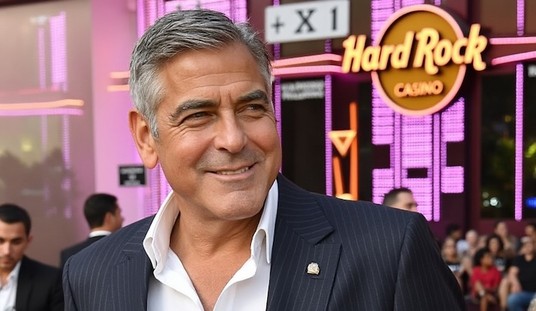Paris, Wednesday November 21, 2007
Item: This morning’s meeting between union, management, and government representatives at RATP (Parisian transit system) headquarters started late: union reps were caught in the heavy traffic. They did not take the m√©tro.
Item: Sabotage on TGV (fast train) lines. Traffic would have been close to normal today, as railway workers went back on the job, but delays ranging from 30 minutes to 4 hours have been caused by systematic sabotage of all lines out of Paris. There is no doubt about the criminal nature of these acts, which are unanimously condemned by management, government, and union leaders. Who’s responsible? Opinons diverge. Didier Le Reste, general secretary of the railway workers division of the CGT wonders who would want to discredit the movement by such cowardly behavior; Christian Mahieux of Sud-Rail says his union had nothing to do with it; Bernard Thibault, general secretary of the CGT asks if it is “provocation or manipulation.” None of them want to think the heavy sabotage could be the logical development of earlier acts of violence committed clearly and visibly by railway strikers every day this week.
Item: The comments in national newspapers–still off the newsstands because of striking workers–could be lined up alongside the rails stretching from north to south of France. A very small percentage of these comments express sympathy with the strikers.
Item: According to an OpinionWay poll for le Figaro and LCI (17 – 19 November) 68% of French people consider the strike unjustified. The breakdown by political affinities is: 97% from Sarkozy voters, 80% from Fran√ßois Bayrou voters, 67% from those favorable to the Front National. Only 45% percent of S√©gol√®ne Royal’s voters think the strike is unjustified, dropping to 31% of voters on the far left. A strong majority of French people want the government to stand firm.
Item: President Sarkozy, speaking before a Congress of mayors, said that he does not want either victors or vanquished in this conflict. The reform, he declared, is not an attack against railway workers or civil servants. It is a reform dictated by necessity. He gently asked striking workers to act responsibly, to end the strike before bringing the nation’s economy to its heels, and release their fellow citizens who have become hostages of the movement. He cautioned that a small, undemocratic minority does not have the right to prevent the majority from living, working, and studying (referring to the strong arm blockades of the universities.)
Item: S√©gol√®ne Royal proclaimed, in her consummate school marm manner, that you don’t reform a country with these brutal, arrogant methods. She was referring to the president’s speech, not to the blockaders or saboteurs. Paris mayor Bertrand Delano√´, whose citizens are suffering the maximum damage from the transit strike, commented on the president’s speech: yes, it’s all very well but he has to respect democracy.
Item: Fran√ßois Cher√®que, leader of the CFDT union, was hissed and booed at yesterday’s demonstration because he had urged strikers to go back to work and enter negotiations. He had to be ushered out by his escort.
Item: Citizens want the government to stand firm. They fear that the slightest sign of weakness will lead to endless perturbations as union leaders, fearful of being overcome by the hardcore elements of the rank and file and determined to negotiate from a position of force, dig in. The results would be catastrophic.
Item: Organizers claim they had 700,000 demonstrators in Paris yesterday: the police claim there were only 350,000. Education officials recorded 33% of personnel on strike, union organizers almost the double. Coverage of the demonstration by state-owned France 3 TV focused on effigies and caricatures of Nicolas Sarkozy. The president’s 140% pay raise was all over the place (and it’s in the comments below).
Did you know that Sarkozy’s predecessors received a salary that amounted to pocket money, and were free to charge almost limitless personal expenses to an uncontrolled elastic account?
Considering this schnorrer system beneath the dignity of the office, Sarkozy awarded himself a salary just slightly above that given to the Prime Minister. Now what’s the complaint? Should he be content with the minimum wage?
Item: The police department reports a 70% increase in accidents causing bodily injury in the streets of Paris for each day during the 7- day transit strike. And that’s not gal√®re?
***
Paris, Tuesday November 20, 2007
Gal√®re: that’s French for drudging it out, and nothing could be more appropriate to describe the life of French citizens on the seventh day of a massive transit strike. Parisians are crammed into m√©tro trains like slaves in the hold of a galley (gal√®re) ship. Provincial commuters who count on the fast trains (TGV) to live in their hometowns and work in the capital stand with bowed heads on platforms, hopeless like prisoners waiting to be shoved off to the penal colony in galley ships. Honest citizens and trouble making riffraff from the banlieue are out in the cold. Businesses are up the river. The economy has lost hundreds of millions euros this week. Transit companies are losing tens of millions. And who will pay for it? The taxpayers, beholden to their misnamed public servants.
Today is the Big Day for the Big Strikers. Those who have been out of work for a week are joined by other public sectors: hospitals, revenue, post office, gas and electricity, education, air controllers, day care… One suspects the media have refrained from work stoppage just so they can cover the glorious parade. No national papers in the newsstands today, but you can read all about it on the Net.
At issue for transportation employees is the reform of their special privileges (r√©gimes sp√©ciaux). Everyone, including their own union leaders, knows that this cannot be avoided. President Sarkozy promised it during the campaign, and he was elected by voters who want him to keep his promise. They are supporting him today. Union leaders claim to accept the reform but reject the method. It is, by all honest reckoning, at least 30 years overdue but they want to discuss it longer, perhaps for another few years. The rank and file is taking a harder line; far from accepting a reduction of their special privileges, they demand an extension to all sectors of the economy, including private enterprise. The 37-year work career, like the 35-hour work week, is a Socialist dream that consists of first shrinking the pie and then dividing it equally. With some being more equal than others of course. The jobless-who are often the focus of solicitude from media, left wing politicians, unionized workers, and assorted humanitarians-are left to shift for themselves at the moment. And they shouldn’t complain, because they at least don’t have to get up at 4:30 AM in order to get to work at 9.
The civil servants who joined the fray today are striking for better salaries, retirement benefits, working hours and conditions. They complain of dwindling purchasing power, which may well be true though no reliable statistics exist. They complain about their working conditions. It’s a running theme these days, because the r√©gimes sp√©ciaux were originally designed to compensate for tough working conditions for drivers in the days when trains ran on steam. Today it seems the baseline is a Caribbean vacation; any effort over and above sitting on the beach with a rum punch is cause for gnashing of teeth on prime time news.
From a high of 61.5% last week to 26% today (SNCF railroad) and 44% down to 18.5% (RATP, Parisian transport) the movement would seem to be winding down. But the metro is still galère. Why? Because, as an RATP executive explains and an SNCF man concurs, they need an entire crew to run a train. The problem is drivers are the hard core of this movement, close to 80% are on strike and, without them, ticket takers are irrelevant, and passengers can go fly a kite. According to the government, a bit over one third of teachers are on strike. But one out of two schools is closed.
Who exactly do the strikers represent? Less than 8% of French employees are unionized. The Unions are intimately connected to political parties…on the left, to be sure. The CGT, which is connected to the Communist party, has been opposed to all compromises with every government, and railroad workers are a big element in the CGT. When union leaders or active members express their grievances in the media, they reproduce arguments heard from leftists during the presidential campaign. They don’t care about equal opportunity, what they want is equal results. And they don’t dare clamor for respect for public service, as beleaguered citizens drag their tired bones through winter cold streets trying to get from point A to point B. The bogeyman is private enterprise. So go explain why all these privately or independently employed people are walking, cycling, scootering, drudging, trudging to get their kids into some kind of day care (remember, the schools are closed) and themselves to work.
Earlier this week, some union leaders were ready to go back to negotiations, but the “rank and file” said no and the government refused to start discussions unless they went back to work. Given the strong percentage of workers who have now returned to the job, the rank and file looks more like a small minority. Meetings of three hundred vote to pursue the strike, then go off and block the rails, barricade roads, set fires, sabotage tracks.
A parallel, violent, totally undemocratic movement has been underway in the universities. Students who want to attend classes are held off by blockaders armed with baseball bats and iron rods. A thousand extremists decide for tens of thousands of students. These agitators are not just against the reform, they are against the government, and determined to bring it down. Inspired by the example of the anti-CPE movement that brought down Dominique de Villepin they have failed, up to now, to create a popular momentum.
The Sarkozy government is determined to hold its ground, keep its promise to voters, reform the system, and create a dynamic economy that will improve purchasing power, offer workers parallel means to increase their retirement pensions and, in general, have more control over their lives and careers. But in order to keep the promise, the president needs a mobilized society that sheds its old habits, stops clinging to worn out lifesavers that will drown them.
For want of wisdom in modern ways, mass media have been covering the strikes with the enthusiasm of the desperate. They seem to be cheering on the retrograde forces that have reduced the population to foot-dragging pawns. Though the media show the horrors of passengers teetering dangerously on the edge of platforms in choked metro stations, and working mothers taking five hours to get to their jobs, the overall effect is a kind of sad excitement. Well well, something is going on here! We have to count on the talkback in certain newspapers to discover some of the more violent acts being committed by the strikers. An article in le Figaro reaped 293 comments. A record! A quick glance shows a no longer silent majority that has had it up to here and beyond!
Workers are threatening to stay off the job if they don’t get satisfaction in meetings with government leaders tomorrow. You can bet your (weakened) dollar that the Sarkozy government will not stand by helpless and let its program be trampled into the pavements of a deadlocked France.
Expect surprises.









Join the conversation as a VIP Member